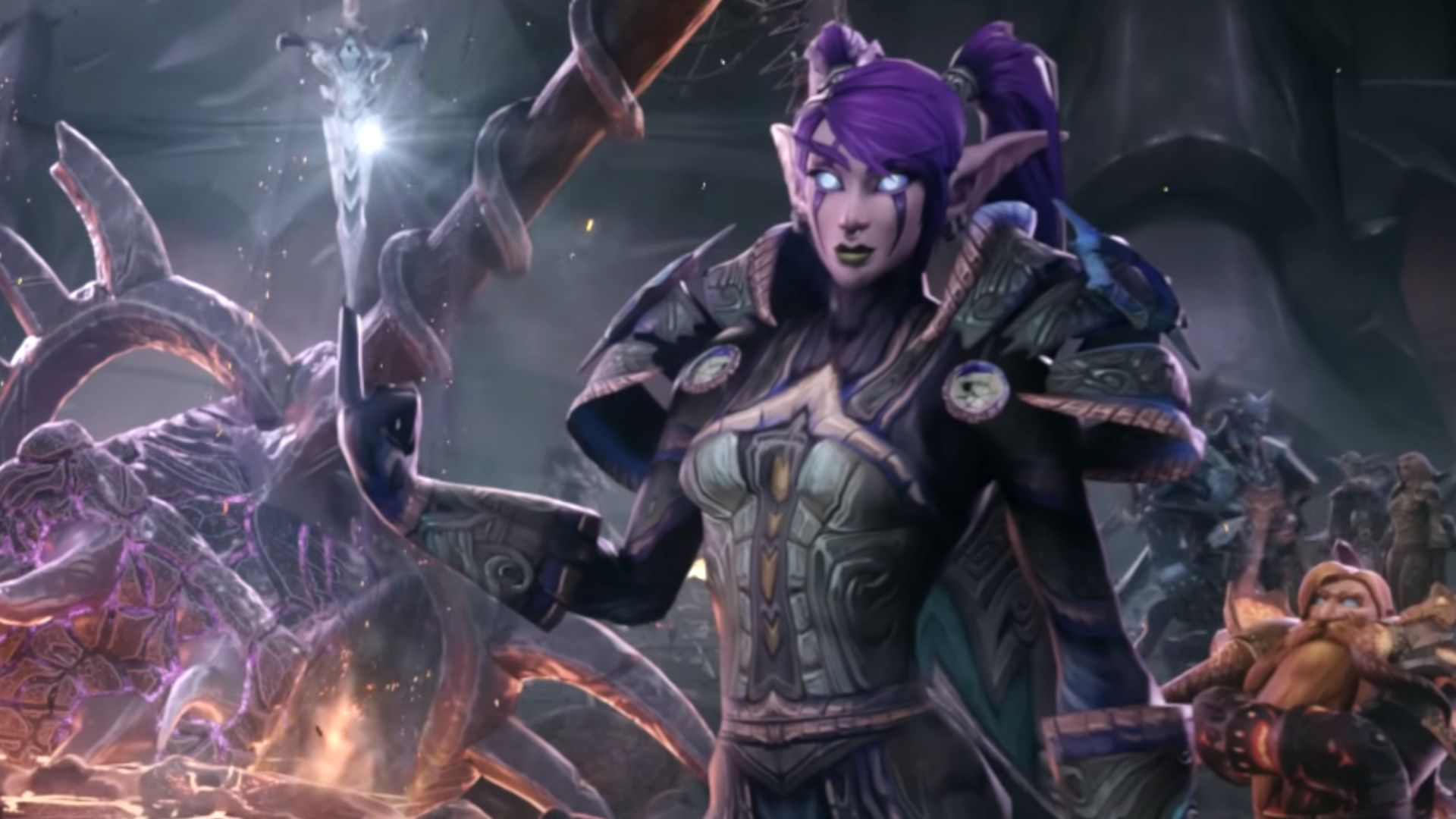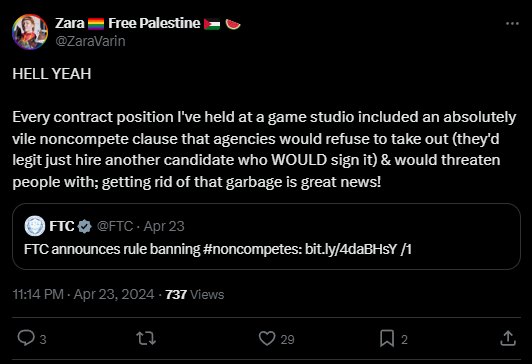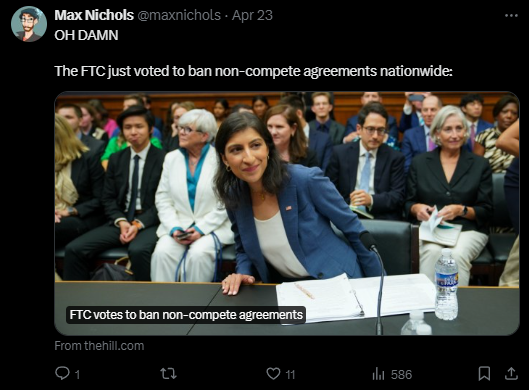US game devs celebrate as non-compete clauses, previously deemed 'a trash way to keep the talent', face a ban from the FTC—which would free up movement across the AAA industry
"There are going to be SO MANY new indie games from AAA devs if this goes through."

Workers from just about every industry in the US are celebrating a landmark announcement by the Federal Trade Commission (FTC) that, unless stopped, will ban non-compete clauses in around four months.
A non-compete is, in essence, a clause that dictates whether a worker can find employment (or create a product) that directly competes with their employer—even if they aren't working for them anymore. Typically, these will last around six months to a year after the end of employment, but they can last longer.
"Today, the Federal Trade Commission issued a final rule to promote competition by banning noncompetes nationwide, protecting the fundamental freedom of workers to change jobs, increasing innovation, and fostering new business formation," reads an announcement on the FTC's website.
"Noncompetes often force workers to either stay in a job they want to leave or bear other significant harms and costs, such as being forced to switch to a lower-paying field, being forced to relocate, being forced to leave the workforce altogether, or being forced to defend against expensive litigation."
This is, in a word, huge. While one could make the argument that a non-compete helps prevent trade secrets from being cross-pollinated between companies, as the FTC points out, there are already trade secret laws and NDAs in-place available that can be legally enforced.
Workers usually just find themselves hamstrung, having to seek employment in other industries or face legal challenges. As former Blizzard employee Chris Sayers wrote in February of this year: "I said I cant survive for 3 months without pay, I have a mortgage, and they looked me in the eye and said 'well, you probably shouldn't have signed the contract then.'"
Not only will the FTC's ban remove future non-competes, but it will also force companies to inform those under past non-competes that they "have to provide notice to workers bound to an existing noncompete that the noncompete agreement will not be enforced against them in the future." The ban is retroactive.
The biggest gaming news, reviews and hardware deals
Keep up to date with the most important stories and the best deals, as picked by the PC Gamer team.
For games, this means that talent from studios—primarily AAA ones more likely to put non-competes in place—will be able to change companies or start up their own independent studios. As spotted by GamesRadar, Aaron San Filippo, director at indie studio Flippfly, writes on Twitter: "There are going to be SO MANY new indie games from AAA devs if this goes through." Filippo was hardly the only person to celebrate the news:


For many developers, this whole thing's been a long time coming. In a report by GameDeveloper last year, several devs wrote in to decry the practice: "Leaving a big looming sword hanging above someone's head is a trash way to keep the talent," said one developer, while another added: "They're there less to scare juniors—though they do that—and more to prevent senior/leadership folks from jumping to an immediate competitor."
The ban itself will go into effect "120 days after publication in the Federal Register", though it's already seeing challenges from various business groups that could see it kept in-transit "as the rule makes its way through the US court system".

Harvey's history with games started when he first begged his parents for a World of Warcraft subscription aged 12, though he's since been cursed with Final Fantasy 14-brain and a huge crush on G'raha Tia. He made his start as a freelancer, writing for websites like Techradar, The Escapist, Dicebreaker, The Gamer, Into the Spine—and of course, PC Gamer. He'll sink his teeth into anything that looks interesting, though he has a soft spot for RPGs, soulslikes, roguelikes, deckbuilders, MMOs, and weird indie titles. He also plays a shelf load of TTRPGs in his offline time. Don't ask him what his favourite system is, he has too many.

